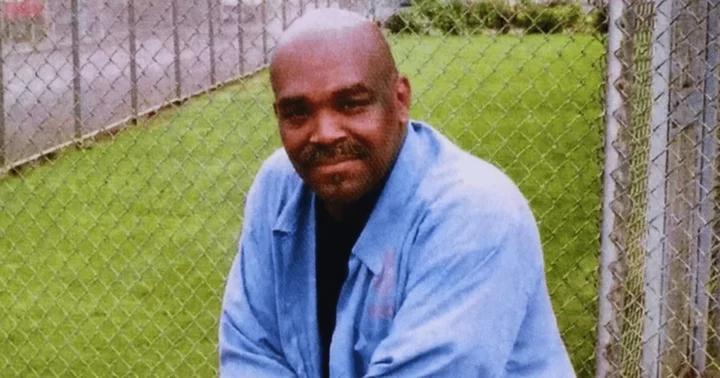PORTLAND, OREGON: A wrongfully convicted man, Jesse Johnson, who had been sentenced to death for a 1998 murder, has been released from custody, after spending 25 years behind bars. His release comes two years after the Oregon Court of Appeals overturned his conviction.
On Wednesday, September 6, the Oregon Innocence Project made a powerful declaration, accusing the state of Oregon of perpetrating a "heinous injustice" in its handling of the case.
Jesse Johnson's wrongful conviction
In a surprising move, the Marion County District Attorney's office requested on Tuesday, September 5, that the Marion County Circuit Court dismiss the case against Jesse Johnson.
Their reasoning was clear, stating that "based upon the amount of time that has passed and the unavailability of critical evidence in this case, the state no longer believes that it can prove the defendant's guilt."
The court swiftly granted this motion, and late Tuesday evening, on September 5, Jesse Johnson walked out of the county jail.
He had been kept in custody while prosecutors considered a retrial for the tragic stabbing death of nurse's aide Harriet "Sunny" Thompson, aged 28, in her Salem home.
Throughout his ordeal, Johnson, who is Black, consistently maintained his innocence and steadfastly refused any plea deals.
A video captured outside the jail on September 5 showed Johnson, adorned in gray sweats, white socks, and black slides, with a broad smile on his face as he walked away a free man.
He strolled alongside a sheriff's deputy who was pushing a cart containing his belongings.
Johnson's happiness was palpable as he exclaimed, "Oh yeah, oh yeah," while supporters embraced him.
Expressing his feelings, he stated, "I'm happy and excited and ready for the next phase now. Been a lot of years for something I didn't do," as reported by Oregon Public Broadcasting.
Jesse Johnson was sentenced to death
It's crucial to recall that Jesse Johnson had initially received a death sentence following his 2004 conviction.
However, in 2011, former Governor John Kitzhaber imposed a moratorium on executions in the state. Last year, then-Governor Kate Brown commuted all 17 death sentences in the state and ordered the dismantling of the state's execution chamber.
The Oregon Innocence Project, which diligently represented Johnson during the appeal process, argued that racism played a pivotal role in his wrongful imprisonment.
The group contended that Johnson's trial lawyers had failed to interview a crucial witness who had observed a White man fleeing the scene of the crime, despite Thompson being Black.
Steve Wax, the legal director of the Oregon Innocence Project, highlighted this issue, saying, "There were clear and unambiguous statements of racism by a detective involved in the case who discouraged a neighbor from sharing that she witnessed a White man running away from the scene on the night of the murder."
According to CBS News, this pivotal witness was neighbor Patricia Hubbard. But Johnson's trial attorneys failed to seek her out. Hubbard eventually spoke to investigators, but only after Johnson had already been convicted.
She recounted seeing a White man parking his van in Thompson's driveway around 3.45 am on March 20, 1998, and entering the house. Shortly after, she heard screams, a thud, and then eerie silence. Hubbard claimed to have witnessed the White man fleeing the house soon after.
In the aftermath of the murder, another of Thompson's neighbors had brought a Salem police detective to Hubbard's residence. When Hubbard began describing what she had seen, she alleges that the detective callously remarked that a Black woman had been murdered, and a Black man was "going to pay for it."
Shockingly, the Oregon Court of Appeals noted that Johnson's defense team had failed to interview Hubbard when it reversed his murder conviction in October 2021.
Moreover, the state had persistently resisted requests for additional DNA testing that could potentially have revealed other suspects. Johnson's DNA was never been found on any of the tested murder evidence.
Reflections on Jesse Johnson's case
Steve Wax expressed profound outrage, stating, "For 25 years, the State of Oregon has fought to defend their deeply flawed case against our former client, Jesse Johnson."
"There can be no more heinous injustice imaginable than for Mr. Johnson to have heard a sentence of death pronounced against him all those years ago in Marion County and to then waste away for years on death row," he added.
In their request for the case's dismissal, prosecutors admitted that no other suspect had been identified in Thompson's murder, despite the ongoing investigation.
Jesse Johnson's release brings a measure of freedom but also exposes a harsh reality.
As Steve Wax poignantly noted, "He didn't even get the paltry amount of gate money that someone would usually get when released because the dismissal of his case means he isn't entitled to it."
In a heartwarming display of support, a GoFundMe campaign launched on Johnson's behalf had garnered more than $10,000 as of Thursday morning, reflecting the public's recognition of the profound injustice he endured.
Notably, Johnson's newfound freedom coincides with another historic exoneration on the same day. A New York man, identified as Leonard Mack, was officially exonerated 47 years after being found guilty of rape in 1976, marking the longest-standing wrongful conviction to be overturned based on new DNA evidence in US history, according to the Innocence Project.









